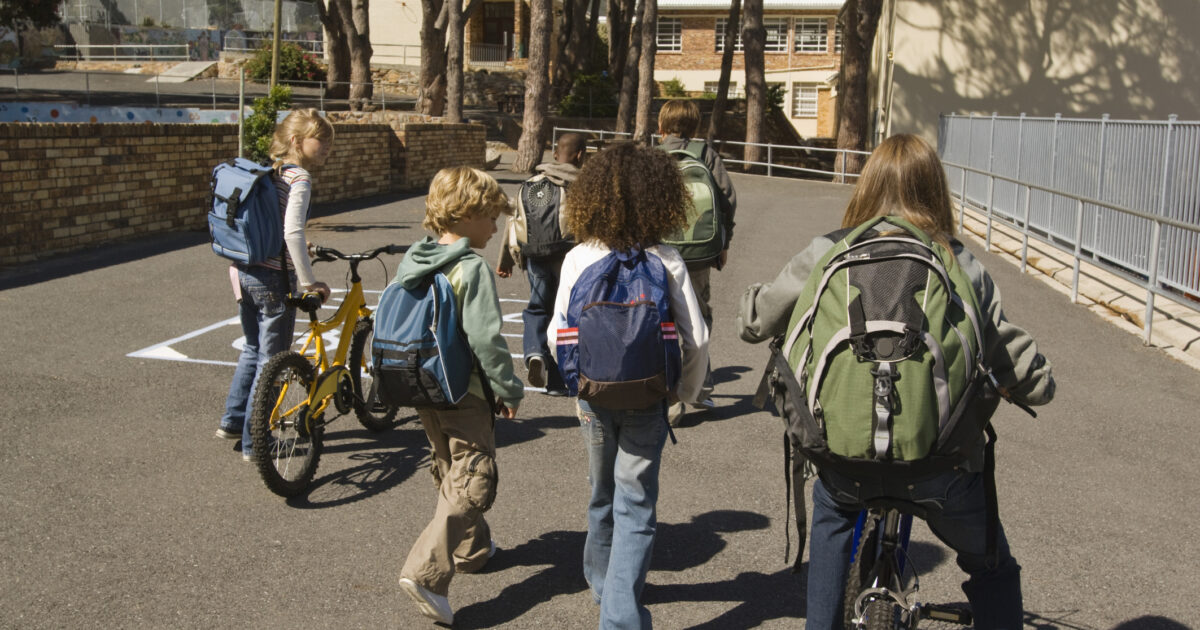Photo courtesy of ICE
Reports on social media and in some news outlets claim that the Trump administration is stealing children, kidnapping children, or has lost thousands of children as a result of immigration enforcement. These claims imply that the United States should have open borders and stop deporting illegal aliens because liberals believe this would make children safer. The reality is that no children have been stolen, kidnapped, or lost by the Trump administration. In most instances, the adult accompanying the child is arrested or deported, and the child enters the system until a legal guardian can be found.
In many cases, this becomes complicated because the guardian is also an illegal alien who refuses to come forward and collect the child. Far from stealing children, the Trump administration is taking an active stance against child trafficking, which is closely tied to illegal immigration, with parents even renting their children to other migrants to expedite their entry into the United States.
In April through September 2018, the Trump administration reported that it could not determine the whereabouts of roughly 1,475 to 1,500 unaccompanied immigrant children. HHS made follow-up calls to 7,635 children from October to December 2017 and could not account for about 1,475 of them, roughly 19 percent. From April 1 to June 30, 2018, HHS contacted 11,254 immigrant children and could not determine where about 1,488 of them were, or roughly 13 percent.
The Trump White House explained that these children were not lost. About 90 percent of the children’s sponsors are parents or close relatives already living in the United States. Because the 30-day follow-up calls are voluntary, many sponsors do not respond. Some avoid speaking to federal authorities because they are illegal aliens. Others simply do not answer unknown numbers, have moved without updating contact information, or have disconnected or incorrect phone numbers. None of these situations means the children are missing.
Between July and November 2018, ICE arrested 170 potential sponsors and placed them in deportation proceedings after they stepped forward to sponsor unaccompanied children. ICE estimated that about 80 percent of active UAC sponsors and accompanying family members were residing in the country illegally. These children arrived in the United States without their parents, so federal officials did not separate them from their families.
Much of the public confusion came from conflating unaccompanied children who could not be reached by phone with the Trump administration’s zero-tolerance policy. The 1,475 children in question crossed the border alone. Children who were separated from adults who were not legitimate guardians, such as suspected traffickers or smugglers using children for easier entry, were placed in HHS custody. Confirming family relationships can take time, particularly when documents are missing or fraudulent. And even when legitimate relatives come forward, locating a child within the system requires navigating bureaucratic processes.
HHS has never been legally responsible for tracking children after they are released to vetted sponsors. Immigration experts have repeatedly explained that unanswered follow-up calls do not mean these children are missing or in danger. Jennifer Podkul of Kids in Need of Defense said it does not mean the child is in an unsafe place, only that someone did not answer the phone. Steven Wagner, an HHS official, compared the public outcry to calling a friend and assuming they were kidnapped simply because they did not pick up. He also noted that sponsors who are illegal aliens often avoid answering calls from federal authorities.
ORR already informs ICE of a sponsor’s name and address twenty-four hours before placement and again twenty-four hours after placement. Policies granting ICE access to ORR’s database were challenged in court during the first Trump administration because they discouraged sponsors from coming forward. Parents and relatives of unaccompanied children feared that sponsoring a minor could result in their own arrest and deportation. This fear significantly increased the amount of time children remained in ORR custody.
The information-sharing agreement corresponded with a steady rise in the average number of days unaccompanied children spent in ORR facilities. In FY2015 and FY2016, children spent an average of 38 and 40 days in custody. In FY2017, the average rose to 48 days. By FY2018, it had reached 60 days, and during the first three months of FY2019, the figure climbed to 89 days.
A related claim is that U.S. citizens have been deported, or that U.S.-citizen children have been deported, but this is false. In these cases, the illegal-alien parents are deported and voluntarily choose to take their U.S.-citizen children with them, which they are fully entitled to do. A child may legally remain in the United States, but a minor cannot live alone. If the child stays behind, they enter state custody until a legal guardian is found, a situation most parents understandably want to avoid. As a result, they take their children when they leave.
Officials across multiple agencies have explained this repeatedly. Secretary of State Marco Rubio said the deported mothers were in the country illegally and chose to take their children with them. A senior Homeland Security official reported that the mother involved in one case specifically asked to return to Honduras with her child, noting that parents are always asked whether they want to be removed with their children or whether ICE should place the children with a designated guardian. In this instance, the parent chose to take the children. Border czar Tom Homan also clarified that the children themselves are not deported; the mother elected to bring them, and parents who enter the country illegally and give birth to U.S.-citizen children must still face the consequences of their own actions.
When illegal alien parents are detained or deported, their children face immediate instability, and parents often have little time to make childcare arrangements. If no relative or friend is available, the child risks entering the foster care system. Many deported parents believe their children are better off remaining in the United States and try to arrange for relatives or friends to care for them. Under ICE Directive 11064.3 (2022), authorities must support a deported parent’s efforts to arrange care, and parents are expected to begin guardianship procedures within the state’s legal framework while coordinating with immigration officials.
In cases where a parent chooses to leave a U.S.-citizen or resident child behind, they often designate a relative as guardian. But if that relative is also illegal, they may be too afraid to come forward because of the risk of deportation. This fear leads to delays as authorities search for alternative legal relatives, such as grandparents, making placement and tracking more difficult.
The post The Trump Administration has Not Kidnapped Children Neither Are They Missing appeared first on The Gateway Pundit.











